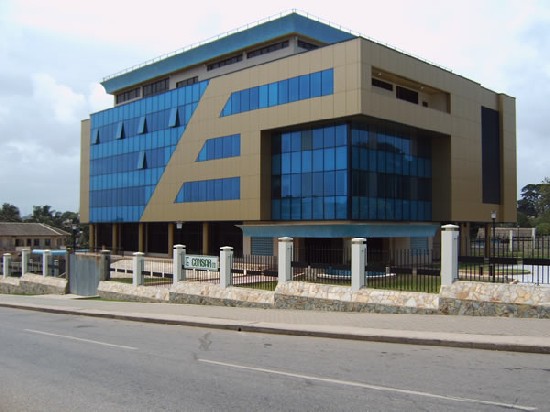The recent happenings in some of the banks in Ghana have brought to bear some lapses in the banking industry. Banks play a very critical role in the functioning of the economy. Banks support the circulation of funds in the economy towards promoting economic development and growth.
It is therefore not surprising that, the recent steps taken by the Bank of Ghana (BOG) to sanitize the banking industry has generally received commendations. It is in the interest of all well-meaning Ghanaians for Ghana to have a robust and efficient banking sector to help the economy to function and grow.
Basically, the core function of a bank which is part of the bigger financial system is to allocate funds from the surplus units (savers) to the deficit units (borrowers) in an efficient manner.
The collapse of about seven (7) banks in Ghana has triggered interest in how banks are managed and operated. Some have attributed the failure of the banks to poor corporate governance by top executives.
Others have also faulted the regulator (BOG) for poor supervision. Consequently, experts in banking and finance in Ghana have shared their insights and opinions on the way forward. The discussions on reforms and the way forward is likely to go on for a period of time.
In view of the above, I also wish to recommend that it is time for banks in Ghana to consider outsourcing their Facilities Management functions to professional Facilities Management Companies in Ghana.
With this approach banks can then concentrate on their basic core function of allocating funds efficiently in the economy as stated above.
Facilities management explained
The International Facility Management Association (IFMA) defines facilities management as a profession that encompasses multiple disciplines to ensure functionality, comfort, safety and efficiency of the built environment by integrating people, place, process and technology.
The International Organisation of Standardisation also defines facilities management as “an organisational function which integrates people, place and process within the built environment with the purpose of improving the quality of life of people and the productivity of the core business”.
From my perspective, Facilities Management (FM) can basically be described as functions that support and maintain the built environment of an organisation by taking care of non-core activities of that organization.
A built environment in the context of an organisation is a man-made workplace which is safe, secure and conducive for undertaking business activities.
Top management of organisations are entrusted to take strategic decisions that should improve the market positioning of their organizations.
Most of these decisions positively or negatively affect their built environment. For instance, studies have shown that productivity at the workplace increases with natural lights. So the decision to relocate offices should be taken with the built environment in mind.
FM services are categorized into two. Soft and hard services. Soft services usually involve a high degree of human interaction. Hard services are mostly technical services required to keep the workplace safe and secured. They include activities carried out to ensure building equipment and installation are functioning according to design.
Facilities mangement functions that can be outsourced by banks
A properly managed and well-maintained workplace is quite motivating for both employees and customers. As part of the on-going reforms in the banking sector in Ghana, banks should consider outsourcing the following Facilities Management functions to competent Facilities Management companies.
These services can be treated as a “bundle service” or “integrated service “and handed over to Facilities Management Companies to execute. Another approach Banks can consider is the Total Facilities Management approach.
The British Institute of Facilities Management (BIFM) explains FM Bundled Services as one supplier managing two or more FM services for a client. It further explained that FM Integrated Services is similar to the bundled model, but a number of services are delivered by one organisation under a single management lead.
With regards to Total Facilities Management (TFM) BIGM defines it as a model where the entire matrix of FM service delivery is outsourced under a single contract to a single FM service provider organisation that may subcontract or self-deliver some or all of the FM services.
There are enormous benefits to be derived from any of the models explained above.The “Hybrid Approach” where some FM services are kept in-house and others outsourced using any of the earlier stated approaches can also be used.
This will allow banks to determine a bespoke FM service delivery model for their particular needs. For instance, in a banking environment, security is likely to be retained in-house whilst other FM services can be bundled and outsourced.
The following services stated below can be combined and outsourced using any of the models stated and explained above:
Soft services
- Janitorial and housekeeping
- Vehicle fleet management and Courier services
- Fumigation, disinfestation and pest control services
- Landscape and utility management
- Waste and sanitation management
- Catering services
Hard services
- Air-conditioning maintenance and management
- Plumbing installations maintenance and management
- Building operations and maintenance
- Generator and pumps maintenance and management
- Lighting and electrical systems maintenance and management
- Civil and carpentry works
- Fire detection and suppression systems maintenance
Why banks should outsource facilities management function
There are enormous business benefits to be derived by banks if they outsource their FM functions to FM companies using any of the models explained above. Apart from getting benefit from bringing on board an outside expertise, banks will also be free to concentrate on their banking core-goals. Banks can, therefore, perform their core-business with assurance that their non-core services stated above are running at the highest standard.
Other business benefits are stated below:
- Contribution to bottom line
FM companies have in-depth knowledge on how to manage an organization’s largest and valuable assets, such buildings, equipment, installations and other environments that house important elements of operations. Therefore the FM company will contribute to the bank’s button line by properly managing and maintaining the long-term physical assets of the bank which usually represent substantial investments.
- Substantial cost savings
Substantial cost savings can be achieved. This is because FM companies enjoy synergies and economies of scale with facilities service providers.
Which serves as a powerful negotiation tool in determining cost of service provision.FM companies are therefore in a better position to use strategic and tactical strategies to reduce banks operational cost on their facilities. Bundling facilities services can help create synergies between services to produce efficient and effective results.
- Improved business performance
Banks can freely concentrate on their core functions to increase competitive advantage in their market. This will enable banks to function at the most efficient and effective level as a result of properly managed value-for-money facilities services.
- Single point of communication
Effective communication in an organisation should flow like a blood in the human body. There would be no life in humans if there’s no flow of blood. Likewise an organisation.
With any of the models banks will enjoy a single point of communication with the Facilities management company. Dealing with different service providers providing varied facilities management services can be quiet frustrating and time-consuming at times.
In some cases, some service providers do not even have any other means of communication apart from verbal communication. With the above-mentioned approach all communication regarding FM services will go to the single FM company. This will result in an effective communication and responsiveness to resolving FM problems. Service delivery is therefore improved and downtime of equipment is also reduced.
Conclusion
My conclusion is that business models keep changing. Banks are using technology to improve their business activities. Also, shareholders are becoming more interested in how their assets are managed and maintained. Employees give of their best if the right environment is created.
Facilities management is fast becoming the tool for creating a conducive working environment and efficiently managing the assets of an organisation.
The time has come for Banks in Ghana to consider outsourcing their facilities function to expert facilities management companies.
There is no ‘one size fits all’ approach in FM services procurement. The approach selected should be based on individual Banks requirements.
–
By: Kwame Nsiah-Wiafe (Facilities Management professional with many years of experience in the Facilities Management sector in Ghana and a member of International Facility Management Association, Greater Accra Chapter | +233244580856, knsiah@brollghana.com)















